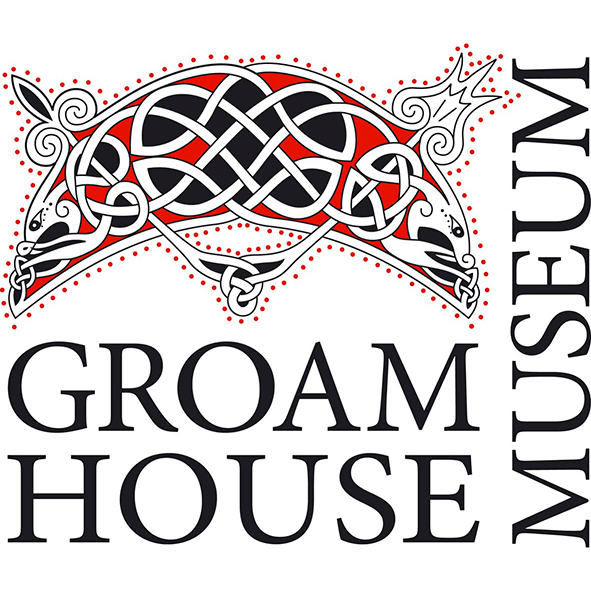Groam House Museum is committed to the Scottish Government’s Fair Work First policy. We are striving to be an organisation which sees employees engaged in what we do, supported through training and development opportunities, and we promote positive approaches to make Groam House Museum a flexible and dynamic place to work.
Effective Voice
We believe in empowering employees’ voices and establishing this through regular meetings with the Groam House Museum board of trustees. We recognise and respect the right of our employees’ to be trade union members.
Opportunity
We run a fair and transparent recruitment process with all job opportunities advertised internally via email. We invest in training for all staff focusing on organisational priorities and individual personal development.
Security
We offer meaningful work which provides a reliable income. We do not use or issue zero-hour contracts. We are committed to paying at least the Real Living Wage for all posts.
Fulfilment
We promote fulfilment at work and a feeling of belonging through our monthly organisational coffee mornings. We invest in training, learning and skills development for employees in current and future roles.
Respect
Staff are entitled to be treated with respect and dignity at work and have a personal responsibility for ensuring that they treat others with the way they would expect to be treated themselves. We consider dignity at work to mean being free to work without experiencing these four unacceptable behaviours:
- Bullying is offensive, intimidating, malicious or insulting behaviour involving the misuse of power that can make a person feel vulnerable, upset, humiliated, undermined or threatened. Power does not always mean being in a position of authority but can include both personal strength and the power to coerce through fear or intimidation. Bullying can take the form of physical, verbal, and non-verbal conduct. Bullying at work means harassing, socially excluding someone, or negatively affecting someone’s work tasks.
- Harassment is any unwanted physical, verbal, or non-verbal conduct which has the purpose or effect of violating a person’s dignity or creating an intimidating, hostile, degrading, humiliating or offensive environment for them. It may be repeated behaviour, or in serious cases, may involve only a single incident. It also includes treating someone less favourably because they have submitted or refused to submit to such behaviour in the past.
- Discrimination is being treating unfairly because of who you are. Direct discrimination occurs when a person is treated less favourably because of a protected characteristic as identified by the Equality Act 2010. Indirect discrimination occurs where employers have a condition, rule, policy or practice that applies to everyone but particularly disadvantages people who share a protected characteristic. Discrimination can also occur by perception and by association.
- Victimisation is the less favourable treatment of someone who has complained or given information about harassment or discrimination or supported someone else’s complaint. Employees have the right to raise grievances and to raise issues relating to discrimination or bullying in good faith and to have these matters investigated. Where a member of staff raises an issue in good faith, they should not suffer any detriment or victimisation by virtue of raising their grievance or complaint with management.
Health and Safety for our employees is embedded in the organisation.
We offer flexible working to all employees and work flexibly with individuals on their needs to balance work and family life.
